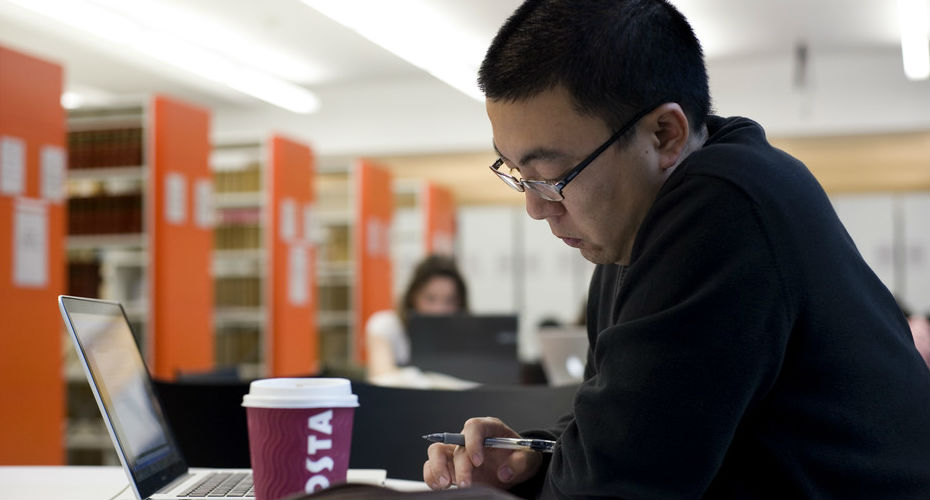Career Zone info
Eligibility
You need to meet the eligibility requirements below before you submit an application otherwise you risk losing your application fee or a visa refusal. If you have any questions about your ability to meet the requirements, come along to a Digital Drop-in session for individual advice.
The requirements are:
- You must not have been granted a Graduate visa in the past. This is a one time visa!
- If you've been sponsored in the last 12 months by a government or international scholarship agency, you will need a permission letter from your sponsor allowing you to remain in the UK.
- You must have a valid Student/Tier 4 visa.
- You must apply from inside the UK before your Student/Tier 4 visa expires. It is not possible to apply for the Graduate visa outside the UK.
- You must have been physically in the UK, on a Student/Tier 4 visa, for all of your course (if your course is less than 12 months) or for at least 12 months of your course (if your course is more than 12 months).
- Your degree must have been awarded and confirmed to UK Visas and Immigration (UKVI). You must wait till you have received an email from the University confirming we have notified UKVI of your award. You do not need to request this notification, the University will notify UKVI as soon as possible after you are awarded.
Being awarded a lower degree than planned means that you will not be eligible for a Graduate visa. For example, starting a Masters programme and being awarded a Postgraduate Diploma or Certificate.
Referred/deferred assessments which are due after the original end date of the course may affect your eligibility for the Graduate visa. See the retaking exams or modules webpage which addresses the various situations students may be in.
Research students: You will be awarded a PhD or MPhil after your final, corrected thesis has been approved. This is after your viva and corrections are submitted.
You should submit a visa application after you have been awarded but before your Student/Tier 4 visa expires.
Your degree must have been awarded and confirmed to UK Visas and Immigration (UKVI) by the University. You must wait till you have received an email from the University confirming we have notified UKVI of your award.
Students who do not have any outstanding assessments after their course end date can expect to be awarded in the following months:
- Undergraduate students will be awarded in late June / early July
- 9 month Masters students will be awarded in late June / early July
- Postgraduate taught students who started in September will be awarded in November
- Postgraduate taught students who started January will be awarded in March
PhD students first submit their thesis and have the viva usually within 3 months. Any corrections that are required need to me made and the corrected thesis submitted. Once the corrections have been approved the PhD is awarded.
If you have any outstanding assessments after your course end date has passed, you will need to contact your Hub for an estimated award date. If this is after your visa expiry date, this is may affect your Graduate Visa eligibility.
In order to be eligible for the Graduate visa, you must be resident in the UK for at least 12 months of your programme (or the full lenth of your programme if you are a 9 or 12 month Masters student). However, absences when you are not required to attend classes are permissible.
Universities have sought clarification of this from UKVI and the current position is that as long as you are meeting all attendance and engagement requirements from your University, absences from the UK at times when you are not required to be in class will be acceptable. The University of Exeter will confirm that you meet the residency requirement for Graduate visa eligibility as long as you have met all attendance and engagement requirements for your modules and attended in person check-ins at times where these are required. For dissertation modules, if you are not required to have in person contact, longer absences from the UK are likely to be acceptable.
You should be aware, however, that you will need to declare your travel history on the Graduate visa application form. UKVI have said that they do not intend to carefully scrutinise this travel history, but we have to advise that there is a possibility that they will do so and that they will question any long absences during your course. We currently do not believe that they are likely to do this, but you need to be aware of the possibility. If you wish to avoid any risk to your Graduate visa application, you should ensure that any absences from the UK during term-time, including during dissertations, are short.
The usual expectation of the Graduate route is that you study your course fully in the UK. However, the government recognises that some students have needed to study remotely due to the Covid-19 pandemic. If you studied remotely in 2020/21 or 2021/22 academic years, you need to have arrived in the UK, with a valid Student/Tier 4 visa by the dates listed below.
- Masters courses started in Sept 2021 or Jan 2022:
- You must arrive in the UK on your Student visa by 30 June 2022 and complete your studies in the UK.
- Undergraduate students completing in June 2023 or beyond:
- You must have returned to the UK by September 2022 at the latest but you will also need to ensure that you have spent at least 12 months of your course in the UK on a Student/Tier 4 visa in order to be eligible for the Graduate visa.
- PhD students:
- You must ensure that you spend at least 12 months of your course in the UK on a Student/Tier 4 visa in order to be eligible for the Graduate visa.

» Conditions
Study and work restrictions on a Graduate visa plus information about after your application and employers' guide.


